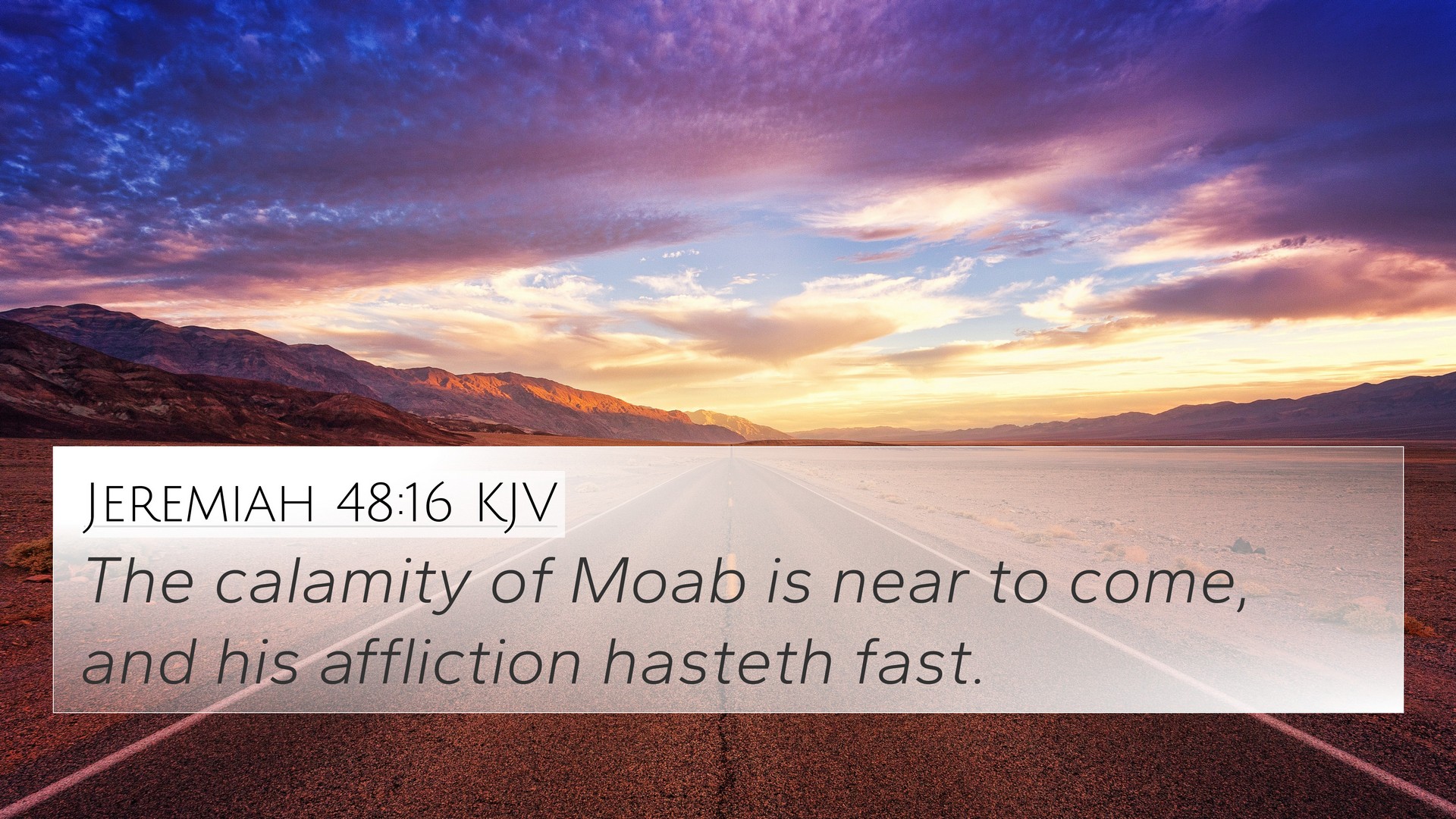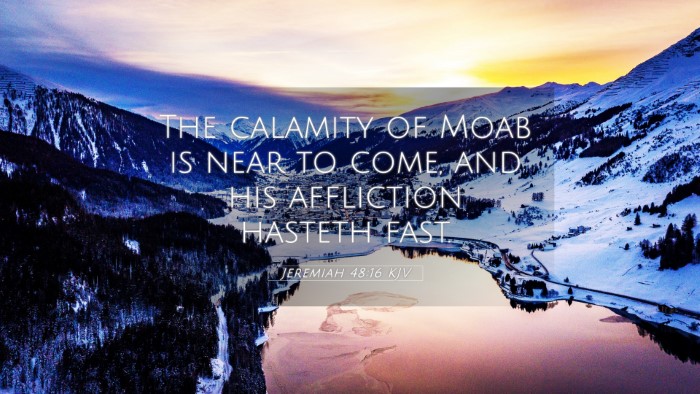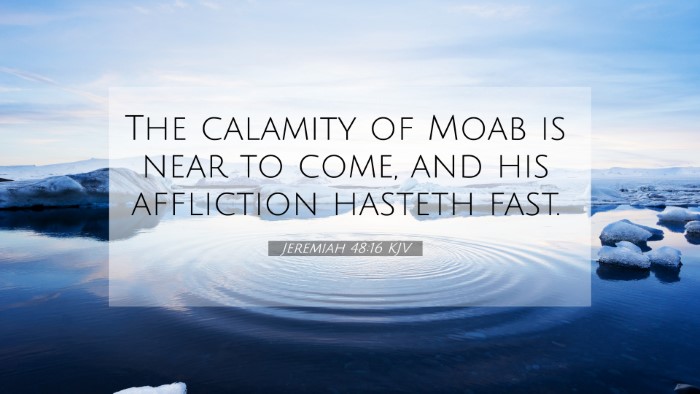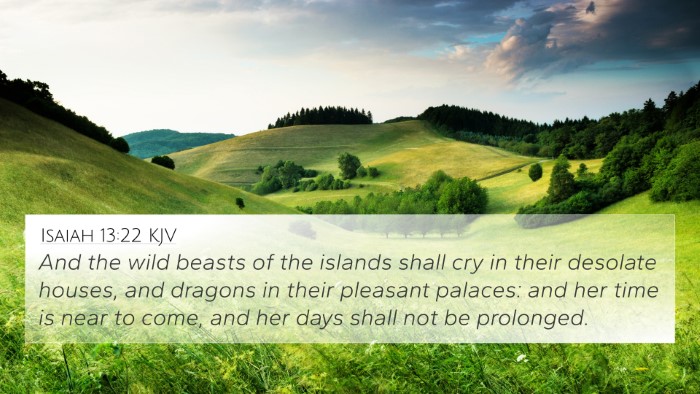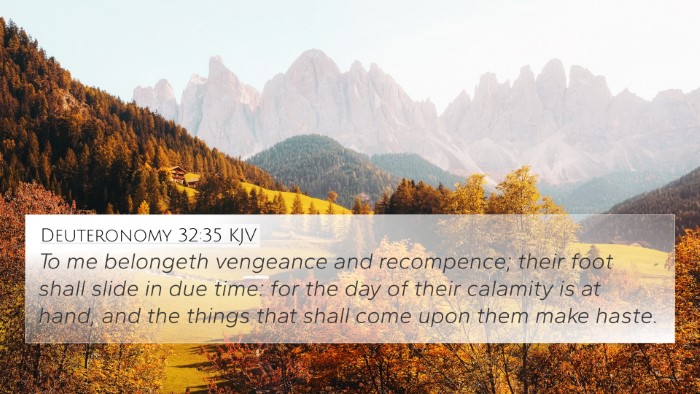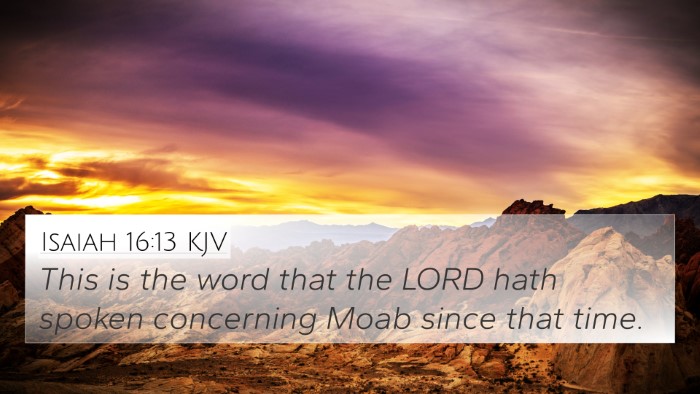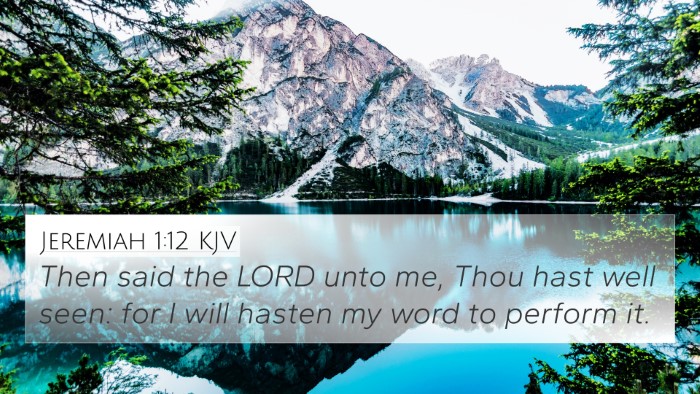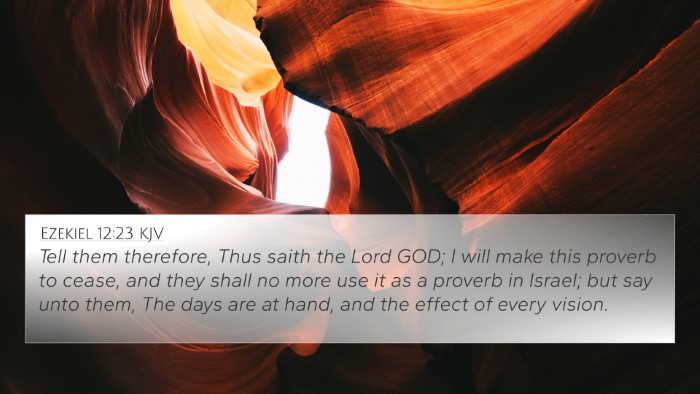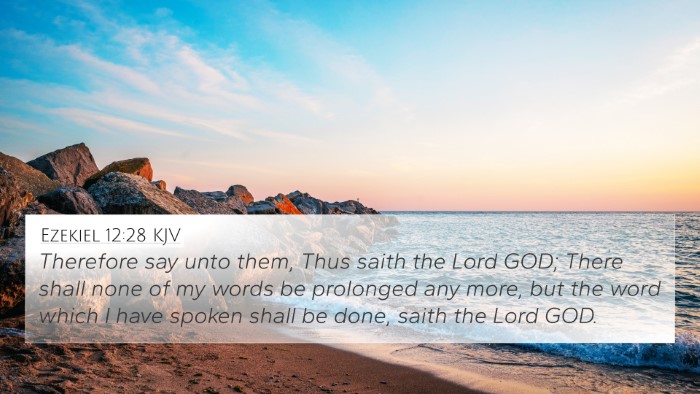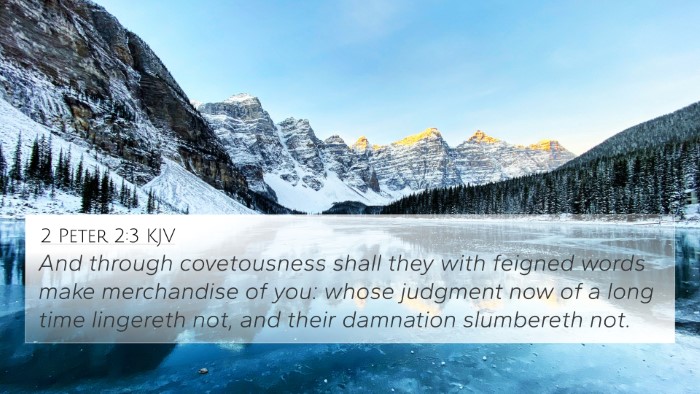The Meaning of Jeremiah 48:16
Verse: “The calamity of Moab is near at hand, and his affliction cometh swiftly.” (Jeremiah 48:16, KJV)
Summary of Interpretation
This verse conveys a prophetic warning regarding the imminent destruction and suffering that is set to befall Moab. Jeremiah's use of strong language emphasizes the urgency and seriousness of the coming judgment. This prophetic declaration is a direct reminder of God’s sovereignty over nations and His judgment upon those who oppose Him.
Insights from Commentaries
-
Matthew Henry:
Henry interprets this prophecy as a declaration of God's impending judgment on Moab for their pride and idolatry. He notes that the swift nature of the calamity suggests that the sins of Moab have reached their fullness, and divine justice is about to be executed.
-
Albert Barnes:
Barnes elaborates on the notion of Moab's "calamity" as a result of their rebellion against God. He stresses the certainty of divine retribution, arguing that this verse serves to warn the nations of the consequences of their actions and their disregard for God's laws.
-
Adam Clarke:
Clarke sees this verse not just as a warning but as a historical point, linking the decline of Moab to their over-reliance on human strength and alliances instead of faith in God. He suggests it serves as a lesson for future generations about the importance of faithfulness and humility before God.
Cross-References and Related Scriptures
Understanding Jeremiah 48:16 is enriched through various cross-references in the Bible. Here are several verses that relate to the themes of judgment and divine retribution:
- Isaiah 15:1: “The burden of Moab. For in the night Ar of Moab is laid waste, and brought to nothing.”
- Ezekiel 25:8-11: “Thus saith the Lord God; Because that Moab and Seir do say, Behold, the house of Judah is like unto all the heathen;”
- Amos 2:1: “Thus saith the Lord; For three transgressions of Moab, and for four, I will not turn away the punishment thereof.”
- Zephaniah 2:8-9: “I have heard the reproach of Moab, and the revilings of the children of Ammon, whereby they have reproached my people...”
- Romans 2:6-8: “Who will render to every man according to his deeds: To them who by patient continuance in well doing seek for glory and honour and immortality, eternal life.”
- 2 Thessalonians 1:6: “Seeing it is a righteous thing with God to recompense tribulation to them that trouble you;”
- Revelation 20:12: “And I saw the dead, small and great, stand before God; and the books were opened…”
Thematic Connections
The tragic fate of Moab as foretold in Jeremiah 48:16 resonates with wider biblical themes:
- Divine Judgment: The consistent biblical principle that nations and individuals are accountable to God.
- Sin and Its Consequences: The inevitability of suffering as a result of turning away from divine instruction.
- Hope for Redemption: Even in judgments, there remain themes of hope and potential repentance as seen in prophetic texts.
Applying the Lessons of Jeremiah 48:16
For contemporary readers, Jeremiah 48:16 invites reflection on the nature of accountability to God, urging us to consider the humility of our hearts and the direction of our lives. Just as Moab faced the harsh consequences of their actions, we are encouraged to live in a manner that aligns with God’s will:
- Seek to understand personal and communal responsibilities before God.
- Engage in cross-referencing biblical texts to deepen understanding of God’s character.
- Utilize tools for Bible cross-referencing to find connections that enhance biblical themes.
- Reflect on how historical narratives influence present-day faith and actions.
